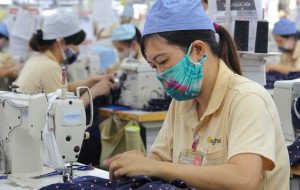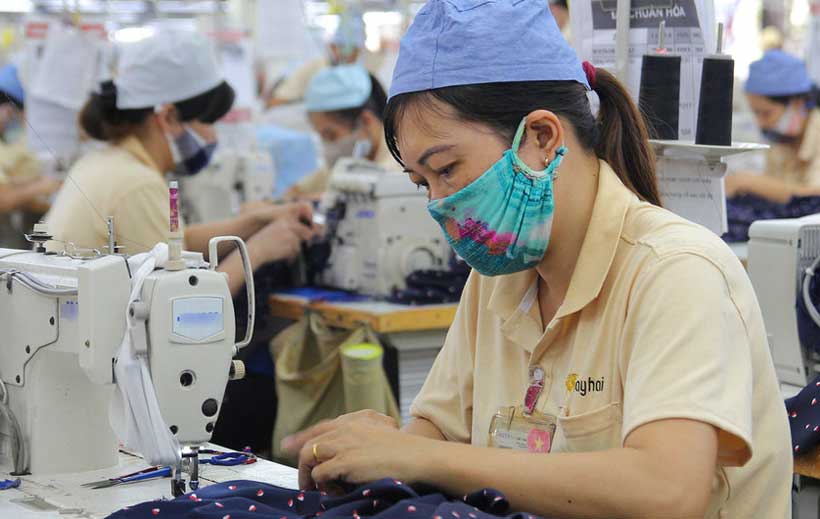
ILO Research: Asia-Pacific Garment Industry Suffers As COVID Pandemic Hits Supply Chain
The COVID-19 crisis has badly hit the garment sector within the Asia-Pacific (APAC) region, with retail sales plummeting in key export markets and workers and enterprises throughout supply chains getting affected. that is what research from the International Labour Organisation (ILO) found. In it, ILO saw major buying countries’ imports from garment-exporting countries in Asia drop by up to 70 per cent in the first half of 2020.
The reasons vary but they can be channelled by collapsing consumer demand, government lockdown measures and disruptions to staple imports necessary for garment production.
The research report assesses the impact of COVID-19 on supply chains, factories and workers in ten major garment-producing countries of the region: Bangladesh, Cambodia, China, India, Indonesia, Myanmar, Pakistan, Philippines, Sri Lanka and Vietnam.
As of September 2020, almost half all jobs in garment supply chains were hooked in to demand for garments from consumers living in countries with the foremost stringent lockdown measures in situ, where retail sales have plummeted. The Asia-Pacific region employed an estimated 65 million garment sector workers in 2019, accounting for 75 percent of all garment workers worldwide.
Chihoko Asada Miyakawa, ILO APAC regional director, said: “This research highlights the massive impact COVID-19 has had on the garment industry at every level. It is vital that governments, workers, employers and other industry stakeholders, work together to navigate these unprecedented conditions and help forge a more human-centred future for the industry.”
Although governments within the region have responded proactively to the crisis, the research reveals the closure of thousands of factories across the region either capacity.
Sample data from May 2020 shows that only 3.9 per cent of Bangladeshi suppliers have retained their entire workforce and 43 per cent of RMG factories in Bangladesh are operating with but temporarily or indefinitely. Worker layoffs and dismissals have increased sharply, while factories that have reopened are often operating at reduced workforce.
“Thankfully, many RMG exporters have resumed operations over the past few months. At an equivalent time, these resilient Bangladeshi enterprises and workforces are having to wrestle with the continued pandemic and ensuring safe conditions for all,” said Tuomo Poutiainen, country director, ILO Bangladesh.
“To this end, the ILO has supported the event of a national Occupational Safety and Health (OSH) guideline on COVID-19 to mitigate infections in workplaces. additionally , several initiatives to guard income, health and employment of RMG workers and support for employers during the pandemic have also been developed,” Poutiainen was quoted as saying by an ILO handout .
In addition, the research identifies how women, who structure the bulk of the workers, are disproportionately suffering from COVID-19, exacerbating existing inequalities in earnings, workload, occupational segregation, and distribution of unpaid care work.
Although the garment sector in Asia is usually marked by low levels of negotiation at both sector and factory level, the research notes that social dialogue appears to possess helped strengthen crisis responses in countries where dialogue mechanisms are in situ . The brief involves more inclusive and meaningful social dialogue at the national and sectoral level in countries across the region.
Other recommendations highlighted include the necessity for continued support for enterprises, also because the extension of social protection for workers and particularly women. The recent global ‘Call to Action,’ a world multi-stakeholder initiative facilitated by ILO is additionally noted as a promising example of industry-wide, solidarity efforts to deal with the crisis.

fashionabc is a fashion technology platform, comprising a digital directory and various other digital tools and supply chain solutions for the fashion industry ecosystem, that focus on ethical fashion and sustainability. We are building inclusive digital transformation tools for fashion professionals who are willing to take steps towards a more sustainable ethical fashion industry, by adopting AI and DLT blockchain technology.
* building digital profile and IP solutions for fashion businesses
* tackle issues such as provenance and counterfeit in supply chain
* contribute to the construction of a meritocratic ethical fashion industry which is certified and part of the circular economy











